The Salesforce Architect exams each come with a resource guide, which includes helpful links for each section of the exam. I have found those incredibly useful in my study. Resource guides don’t currently exist for the standard exams, so I have compiled content into a series of resource guides. This is the Salesforce Service Cloud Consultant resource guide.
The Salesforce Service Cloud Consultant certification focuses on a broad knowledge of the tools and features of the Service Cloud platform. The consultant exams present you with scenarios and asks you to consider different options and propose the best solution. This includes service specific tools and metrics. Understand the intended use of Service Cloud, industry terms (case deflection, self-service, CTI, etc,), and what service metrics matter to stakeholders.
Understanding the Tests
As I mentioned in a previous post, understanding the intention and structure of the exams is key to passing. Salesforce provides a study guide for every certification test. In those guides, they provide a breakdown of the different sections and their relative weight. Take note of those while studying.
Breakdown
| Topic | Weighting | # of Questions |
| Service Cloud Solution Design | 16% | 10 |
| Service Console | 15% | 9 |
| Implementation Strategies | 15% | 9 |
| Case Management | 15% | 9 |
| Industry Knowledge | 10% | 6 |
| Interaction Channels | 10% | 6 |
| Knowledge Management | 9% | 5 |
| Integration & Data Management | 5% | 3 |
| Contact Center Analytics | 5% | 3 |
Under each topic in the study guide, there are bullet points that describe the information you need to know. For example, the ‘Contact Center Analytics’ section, the bullet points are:
- Given a set of desired metrics, determine the appropriate reporting solution taking into account data sources, data volume, and various contact center technologies (ACD, IVR, PBX, etc.).
- Given a scenario, evaluate the considerations when designing reports and dashboards to serve different stakeholders (agents, supervisors, managers, executives).
This question speaks to some industry specific terms that are used in a contact center. Make sure you understand what the terms mean, why they matter, and what implications they can have on the solutions you would recommend in Service Cloud.
Resources
SERVICE CLOUD SOLUTION DESIGN – 16%
- Given a scenario, analyze customer requirements to determine an appropriate solution design considering capabilities, limitations and design trade-offs.
- Distinguish the key components that contribute to performance optimization within a design.
- Given a scenario, understand the use cases and benefits for implementing CTI, Communities, and Field Service Lightning.
SERVICE CONSOLE – 15%
- Given a scenario, identify the appropriate Service Console features to meet the business need.
- Explain how different Service Console features work together to deliver business value.
- Given a set of business requirements, describe how a feature should be implemented.
IMPLEMENTATION STRATEGIES – 15%
- Given a scenario, determine how to facilitate a successful consulting engagement (plan, gather requirements, design, build, test and document).
- Given a scenario, determine appropriate contact center deployment strategies.
CASE MANAGEMENT – 15%
- Given a set of requirements, design a case management solution from case creation to closure including case assignment, case escalation, case resolution, and case disposition.
- Describe the relationships between cases and other areas such as assets, entitlements, work orders, Communities, Live Agent, and Knowledge.
- Given a set of KPIs, determine the appropriate case management solution.
- Explain the capabilities, use cases, and how to configure the service entitlements in Salesforce.
- Explain the use cases, capabilities and limitations of Flow important to case management.
- Explain the use cases, capabilities, and limitations of Service Cloud automation (Flow, process builder, quick actions, macros, quick text).
- Identify use cases and capabilities of Social Customer Service.
INDUSTRY KNOWLEDGE – 10%
- Explain the factors that influence key contact center metrics, KPIs, and business challenges.
- Explain the uses cases and benefits for different interaction channels.
- Compare and contrast the different types of contact centers and their business drivers (Help Desk, Product support, Telesales, Service, Field service/depot repair, B2C, B2B, etc.).
- Identify the benefits of a knowledge base.
KNOWLEDGE MANAGEMENT – 9%
- Explain the knowledge article lifecycle including creation, publishing, consumption, and feedback.
- Given business process requirements, determine the appropriate approach to manage Knowledge adoption and maintenance.
- Given a set of requirements, determine how to configure data categories, article types, and publishing workflow.
- Understand the key factors to consider when implementing a Knowledge data migration strategy.
- Given a scenario, describe the considerations when migrating from Knowledge to Lightning Knowledge.
INTERACTION CHANNELS – 10%
- Describe the use cases and functionality for each interaction channel (communities, mobile, phone, email, web, chat, SOS/video channel, and social media.)
- Given business process requirements, determine the appropriate approach to case submission.
- Explain the design considerations (user interface, user profiles, objects to expose, sharing model, reporting, etc.) and best practices when configuring an interaction channel solution (mobile, phone, email, web, chat, or social media).
INTEGRATION & DATA MANAGEMENT – 5%
- Explain the use cases and considerations for common Service Cloud Integrations.
- Explain the considerations for data migration and data quality.
CONTACT CENTER ANALYTICS – 5%
- Given a set of desired metrics, determine the appropriate reporting solution taking into account data sources, data volume, and various contact center technologies (ACD, IVR, PBX, etc.).
- Given a scenario, evaluate the considerations when designing reports and dashboards to serve different stakeholders (agents, supervisors, managers, executives).
Ready for the Exam?
Book your exam now, even before you start studying. There’s no better way to drive you to study than booking your exam. For this exam, you are taking on the role of a consultant. You will be asked to make recommendations and design solutions based on scenarios. So this exam really requires you to understand the tool available in Service Cloud, as well as pros/cons and limitations of the different platform features.
If you have questions during your exam preparation, please feel free to reach out. I’ll do my best to respond with some help and guidance.

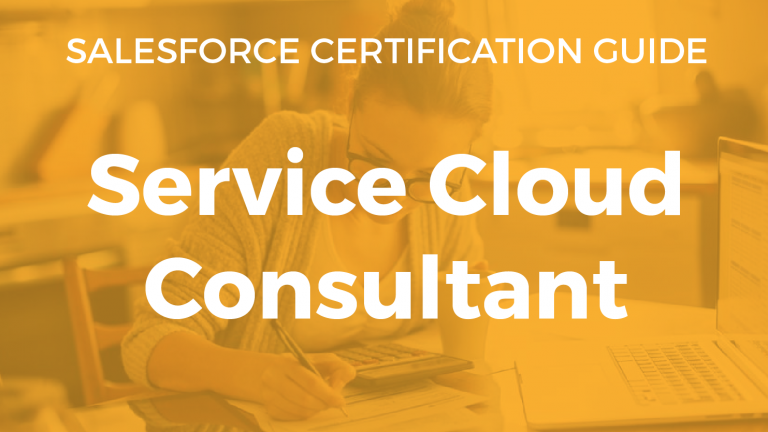
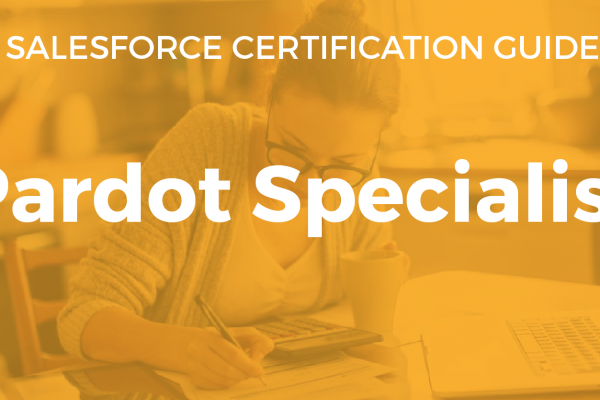
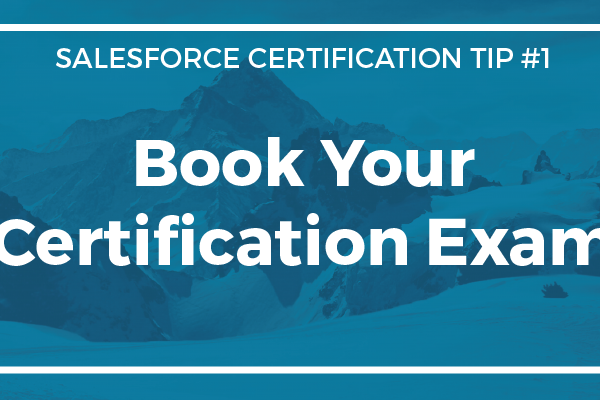
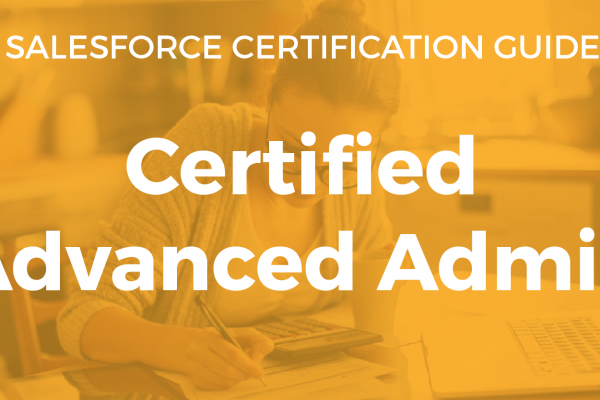
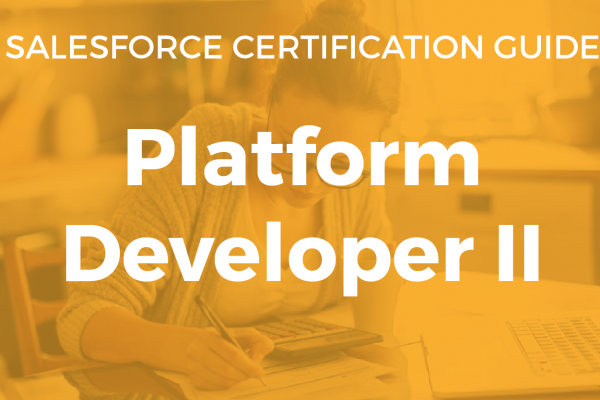
Hi Chris,
This is such a good thread. As per the recent study guide, there are some additional topics added. Could you please help to link these topics with trailhead. Thanks much in advance.
SERVICE CONSOLE
Given a scenario, identify the appropriate Service Console features to meet the business need.
Explain how different Service Console features work together to deliver business value.
Given a set of business requirements, describe how a feature should be implemented.
So far your site has been so useful for me with preparation
Thank you for sharing. I have added the links for this section. I’ll post a new article with updated links in a month or so.
SERVICE CONSOLE
Hi Chris,
Just looked at two of your links and they were broken. Didn’t check anymore but this may need to be updated.
Live Agent Basics
Service Cloud Macros
Thanks for letting me know. Those are no longer part of the certification prep for this exam. I have updated the entire guide with the new outlines, topics and links.
Service Cloud – Knowledge Centered Support link is now going to the Salesforce blog. Any chance you have the correct link?
Here is an updated link that offers similar content (downloadable PDF). They removed the old post, so this is the next best thing.
It looks like SFDC updated this question in the Service Cloud Exam:
OLD
UC has completed development and testing of its Service Cloud implementation and plans to migrate functionality from the sandbox environment to the production environment. What should be used for migration functionality?
A) Data loader, change sets, and Force.com Excel Connector.
correct B) Force.com migration tool, Force.com IDE, and change sets.
C) Visual Workflow, data loader, and Force.com IDE.
D) Mass Transfer Records, change sets, and Force.com migration tool.
New
A) Visual Studio and Change Sets
B) Mass Data Transfer, Visual Studio and Change Sets
C) Data loader, change sets, and Force.com Excel Connector.
D) …can’t remember….
Any idea what the right answer could be?
Change Sets is definitely correct and given the latest changes with the Force.com Migration tool, I would answer A)
Hard to say for sure, but I would go with A as well. You could build change sets for the migration, and VS Code would also allow you to migrate some code and configuration. The question doesn’t specifically mention that data needs to be migrated, it used the word functionality. So based on that wording, I would disqualify B and C (also out for the Excel connector).